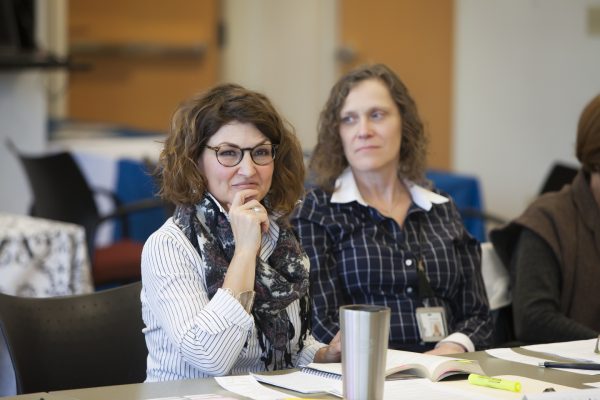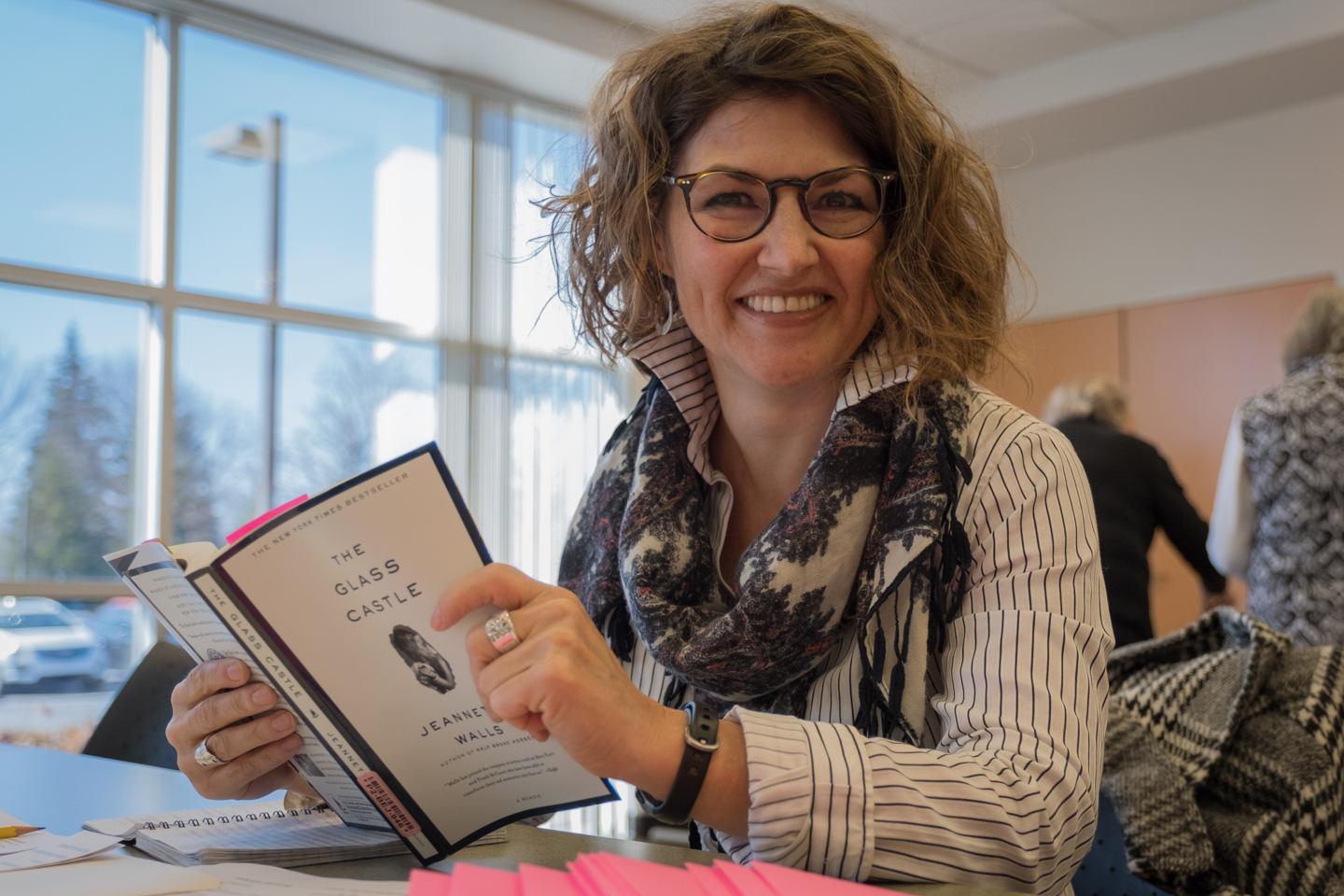“Dream big.”
“Sink or swim.”
“Tell the truth. It’s simple enough.”
To say the least, it was an upbringing in the extreme. As Jeannette Walls depicts in her acclaimed memoir, The Glass Castle, telling the truth about her harrowing childhood was anything but simple. For years, she hid the facts about her vagabond and often homeless parents – her father, Rex, a charismatic, yet incorrigible alcoholic and Rose Mary, her pathologically neglectful mother.
“We all have issues from our past. Anyone who tells you they have no issues is lying to you.” – Jeannette Walls
Against all odds, Walls is a Barnard College graduate, a New York gossip journalist turned best-selling novelist, a gifted storyteller and motivational speaker. In colorful and unflinching prose, Walls’ memoir tells the story of four children – “white trash kids,” foraging for food, “skedaddling” from desert town to town, one step ahead of bill collectors, chasing their father’s dream of building a “glass castle,” yet living in abysmal circumstances where poverty, hunger and abuse were the family norm.
“Part of the secret of storytelling is shining your light in the dark corners. I’ve come to believe that the things we don’t want to admit to ourselves are the best things going for us and where our greatest strengths lie.” – Jeannette Walls
Published in 2005, a New York Times bestseller for five years, (listed in 2012 on the Top Banned/Challenged Books for its “disturbing content”), translated into 22 languages and recently adapted into a film starring Woody Harrelson, Naomi Watts and Brie Larson, The Glass Castle is widely read today – a classic case study, taught in college courses in literature, psychology, parenting and child development.
Outrageous misfortune: Reading between the lines
Setting the stage for mayhem in every chapter, the book opens with two pivotal scenes – Jeannette hunkering down in a taxi, mortified to see that “a woman on the street” is her mother rooting through trash. Next, comes a flashback to Jeannette at three, alone in the kitchen, cooking hot dogs for lunch, standing on a chair to reach the stove and watching in wonder as her dress is suddenly engulfed by flames. “I was on fire.”
More telling than that fiery pivotal scene — and so easy to overlook as readers dive into the story are the Acknowledgments expressing the author’s abiding love and gratitude to her family:
“I’d like to thank my brother, Brian, for standing by me when we were growing up and while I wrote this. I’m also grateful to my mother for believing in art and truth and supporting the idea of the book; to my brilliant and talented older sister, Lori, for coming around to it; and to my younger sister, Maureen, whom I will always love. And to my father, Rex S. Walls, for dreaming all those big dreams . . .”
That, in a snapshot, is Jeannette Walls’ family portrait – forgiving all and letting go.
A memoir that reads like fiction, nuanced and challenging, begging questions of character and inspiring our own self-reflection – what better material for the book club discussion recently hosted by Jewish Family Service of Metro Detroit? And who better to lead it than Tara Hayes, PhD, well-known and loved in the community as The Book (& Film) Club Professor.

“Dr. t” to her students while a professor at Wayne State and then Oakland University, Tara is a prodigious reader, an astute and engaging educator and an advocate for Social Justice, adept at facilitating and elevating group discussions for private as well as several public book and film groups.
Prompting the group of about 50 gathered for discussion at JFS, Tara begins:
“We’re thinking about the book as a case study. So many of the challenges of the Walls family overlap with the work of JFS and kind of services they provide.”
Turning the discussion over to the group, Tara asked for thoughts about how one issue in a family often signals there is more going on and about how one issue can trigger another.
What followed around the table for the next two hours were insights into a constellation of topics: poverty, mental illness, alcoholism, addiction, joblessness, homelessness, hunger, neglect, domestic abuse, stigma, shame, guilt, acceptance, love, resilience . . . topics touching families in general, in our communities, and all based on the text of the book.
In an effort to expand standard ideas about “family,” Tara asked the group to share their definitions. “What do we mean by a ‘normal’ family? In contrast, what do we mean when we label a family ‘dysfunctional’? Through the lens of The Glass Castle, how can we begin to see the similarities and overlaps of each?”
Co-leading the discussion with Tara, JSF Chief Program Officer Shari-Beth Goldman added her clinical view: “A dysfunctional family can turn out highly successful children, and certainly we all know families we consider to be strong who have children with issues. When we’re working with families, we ask what the rules are that hold the family together – or tear it apart. We look at the structure of the family and ask what are the roles each member assumes and who’s in what position within the family and in the sibling subgroup. Looking into The Glass Castle as a case study, we might ask what makes this family worth Jeannette’s love and protection. What we see on the surface are hard core issues, but what isn’t being said is equally important to understanding the fabric of the family.”
“Our job as readers is to try to put ourselves in each character’s shoes and, in the particular case of The Glass Castle, to move forward into the way Jeannette Walls is looking at the world,” concluded Tara. “Once we take that perspective inside the family and put ourselves in the position of each of its members, then we can understand and think about the ways we might engage, support, and even intervene.”
The community is invited
Celebrating JFS@90, the community is invited to an evening with Jeannette Walls, featured speaker for this year’s Reva Stocker Lecture Series, Wednesday, May 30, 2018, 7 p.m. at Congregation Shaarey Zedek. Proceeds from the event will support the vital services provided by JFS including mental health and wellness, safety net and care of older adults. To register or support, visit JFS online.


